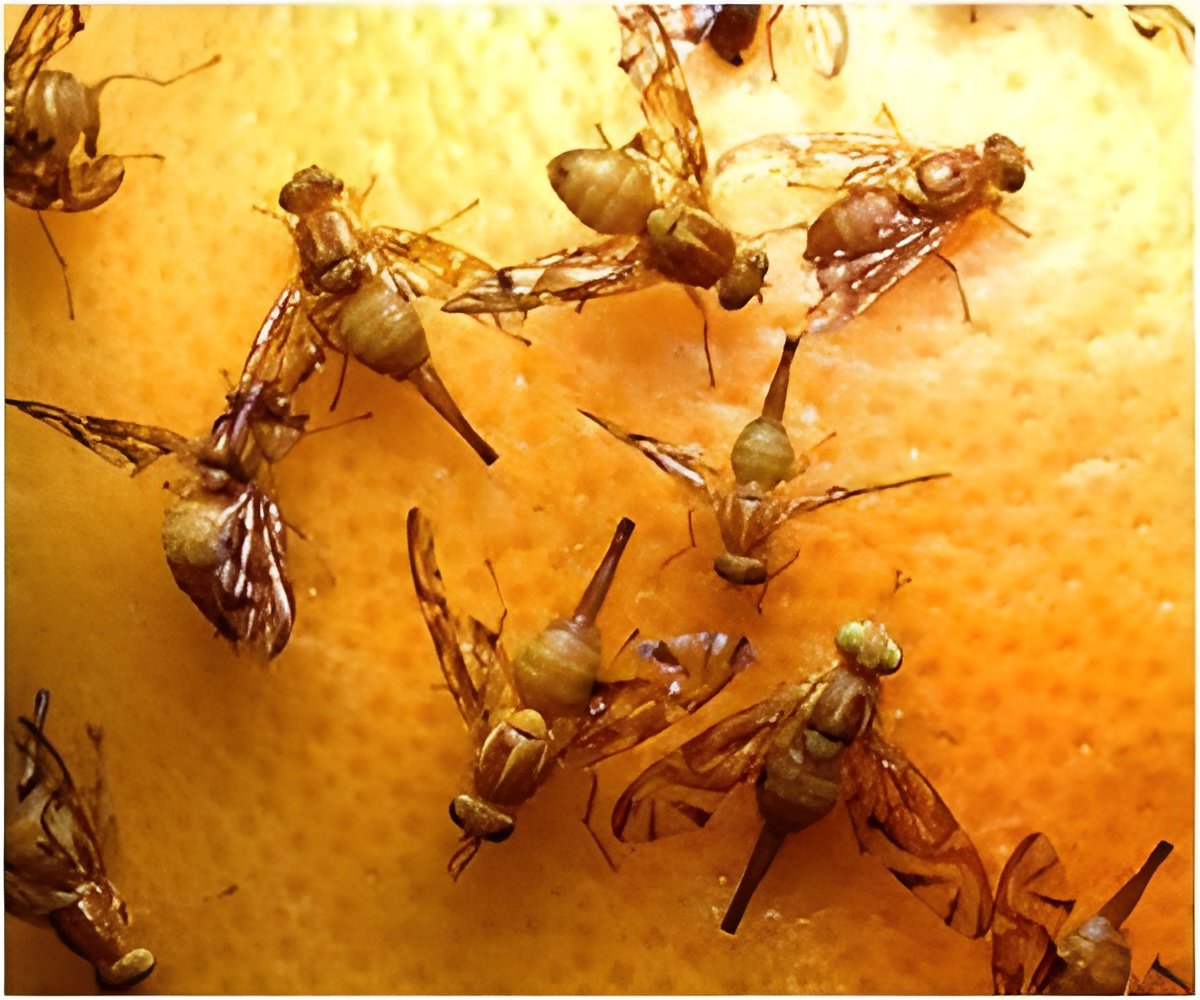
"Little is known about the other half-the reward-driven feeding behavior-when the animal is not so hungry but they still get excited about food when they smell something great.
The fact that a relatively lower animal, a fly larva, actually does this impulsive feeding based on a rewarding cue was a surprise."
The research team led by Shen, who also is a member of the Biomedical and Health Sciences Institute, found that presenting fed fruit fly larvae with appetizing odors caused impulsive feeding of sugar-rich foods.
The findings suggest eating for pleasure is an ancient behavior and that fly larvae can be used in studying neurobiology and the evolution of olfactory reward-driven impulses.
To test reward-driven behaviors in flies, Shen introduced appetizing odors to groups of well-fed larvae. In every case, the fed larvae consumed about 30 percent more food when surrounded by the attractive odors.
Advertisement
"They have expectations," he said.
Advertisement
The study was recently published in the journal Cell Press.
Source-ANI












